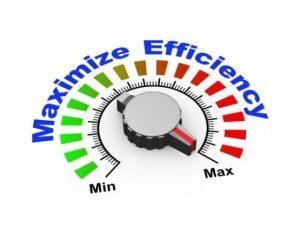
Home Design-what do we really need
During the last twenty years American home buyers and builders have become slaves to large houses. Even though the average family size has grown smaller we continue to build houses that are substantially larger than that of our parents. With master bedrooms that you could play baseball in and foyers as large as family rooms. America consumes more natural resources than any other nation on the planet. I challenge us all to reevaluate our actual needs as it relates to home design and resource consumption. It may be time to get back to the basics.
What are ideal room sizes? How many bedrooms do we actually need? Do we really need to build that bonus room over the garage? I drive a hybrid car. I love the idea of getting fifty miles per gallon while producing very little in the way of carbon emission. My car is compact yet roomy. It is fuel efficient yet has plenty of pep. This same concept can be applied to home design.
Here are some things to consider:
CIRCULATION:
Circulation is the pathway through a floor plan. Pathways include hallways, stairways and rooms designed for circulation like foyers, vestibules and mudrooms. Additional pathways are the spaces between and around furniture and other objects where people are likely to travel. Good circulation is essential for a successful and efficient floor plan. A terrific floor plan makes good use of every square foot of living space. Designers can place furniture to scale into floor plans so clients can get a feel for a room before the construction begins. With good planning even modest size rooms can provide good circulation that allows easy movement while avoiding furniture groupings.
MINIMUM ROOM SIZE:
Sizes listed are meant as a guide only, adjust as necessary. The most important thing is not the size of the room but the traffic flow (circulation).
Living room: 11’x16’
Family room: 12’x17’
Dining room: 8’x11’
Kitchen: 12’x12’
Master bedroom: 11’x14’
Secondary bedrooms: 9’x10’
Other things to consider in addition to room sizes:
Do you really need a dining room when a simple dining area off the kitchen might do, or a formal living room that kids aren’t allowed to play in. I won’t mention large foyers with twenty foot high ceilings or expensive whirlpool tubs that hardly get used. I acknowledge that these are great features to have in a home, but with the cost of living today, tapering our wants against our actual needs is worth consideration.
IDEAL NUMBER OF BEDROOMS:
There is no set number of bedrooms required. As a rule, three bedrooms work pretty well for most families.
COMMUTE DISTANCE:
If you work and live in Rhode Island commute time for most people is minimal.In larger states like Massachusetts keep the following things in mind: Locating within urban areas will almost always save you money. Infrastructure such as water, sewer, schools, fire, police and shopping are already in place and don’t have to be duplicated. School buses, rescue vehicles and snowplows travel many additional miles servicing suburban homes located on long country roads. With the cost of energy and growing concerns over global warming, building new homes next to existing infrastructure and other conveniences makes good economic and environmental sense.
Whether you are an empty-nester or a family just starting out in Rhode Island, realistically consider what your actual needs are and then set out to build the perfect home.
 Design Tip: Large rooms such as great rooms sometimes lack sufficient natural light, consider adding roof windows to rooms with limited exposure to outside walls. Natural light is free and is a great way to brighten dark areas.
Design Tip: Large rooms such as great rooms sometimes lack sufficient natural light, consider adding roof windows to rooms with limited exposure to outside walls. Natural light is free and is a great way to brighten dark areas.
Energy Geeks is a Home Performance Contractor serving both Rhode Island and Massachusetts. Our primary focus is sustainability and efficiency as it pertains to energy use, water consumption, indoor air quality, land use and building design. So whether you are building a new home or adding an addition to an existing home, why not give the experienced and friendly staff at Energy Geeks a Call at 401-766-1540 or visit our website at www.energygeeksinc.com.

